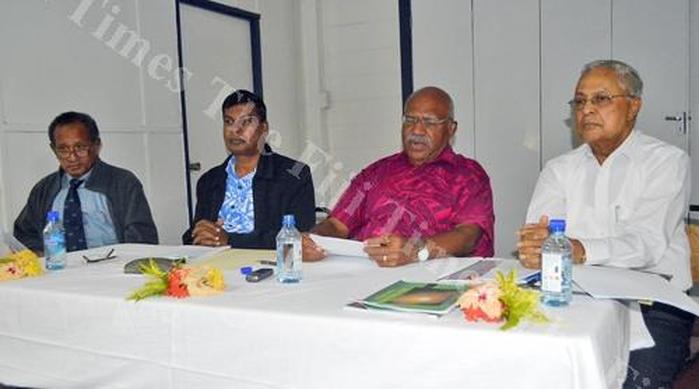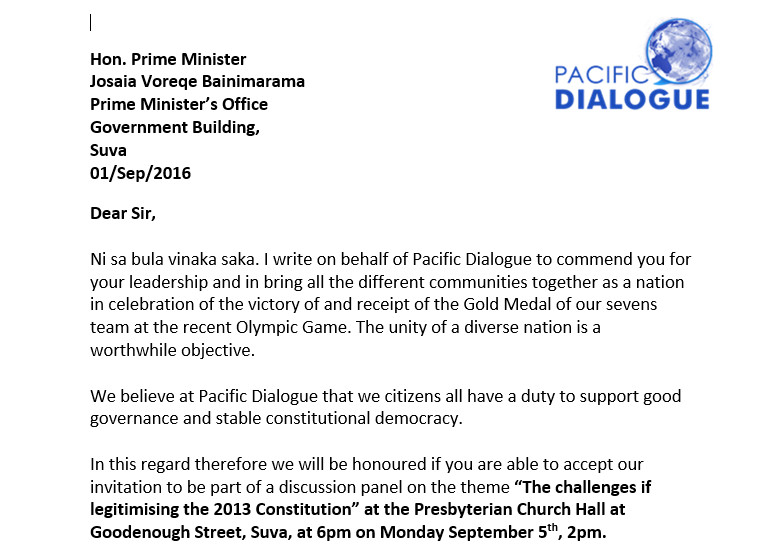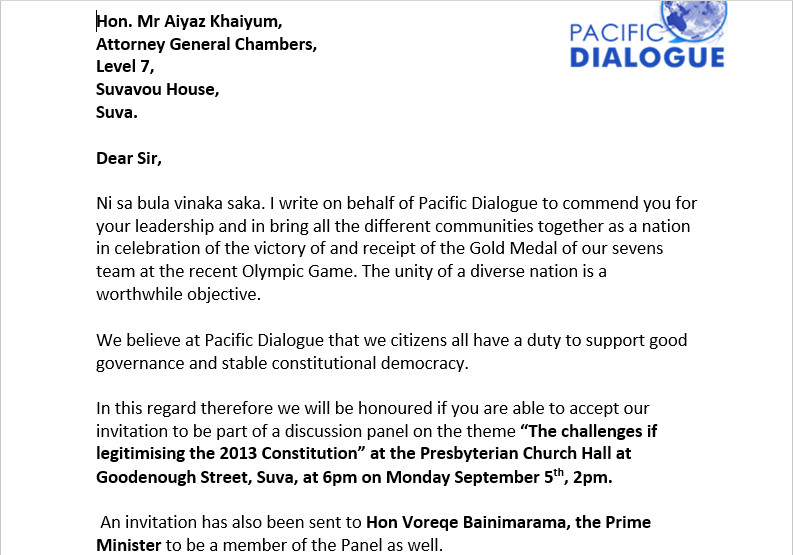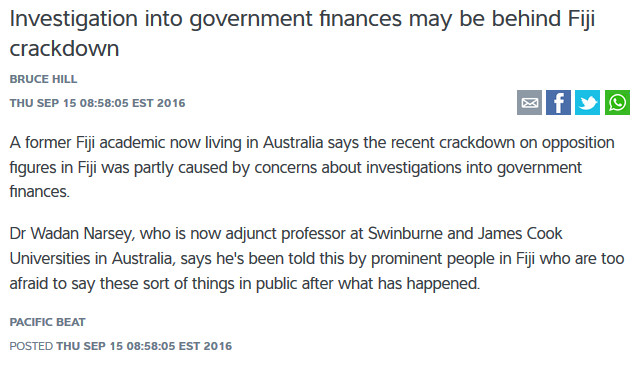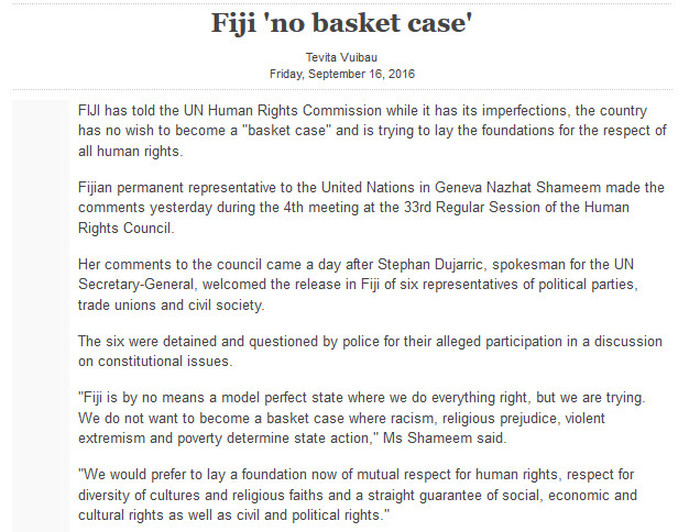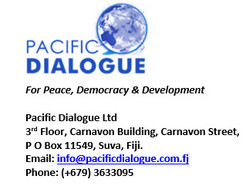
Pacific Dialogue wishes to clarify that when it held a meeting on Monday September 5th at the Presbyterian Church Hall it had done so legally without need to apply for a permit. Pacific Dialogue had checked the Public Order Act 1976 and Amendments and noted that under Section 9, it was exempted from the need to apply for a permit, firstly because it’s activity was consistent with its charitable objects, and secondly that the church hall is not defined under Section 2(i) as a public place.
Under the law, Non-government Organizations such as Pacific Dialogue, like religious organizations, are not required to apply for a permit to hold meetings in those places that are not identified under the Public Order Act as “places of public resort” and because their objectives are charitable.
Two of the charitable objectives of Pacific Dialogue under which the meetings were held were:
Ø “Alleviate social tensions and conflicts through facilitation of dialogues promoting a culture of tolerance and peace”
Ø “Address the causes and consequences of conflicts that lead to break down of democracy and the rule of law”
Pacific Dialogue, between 2015 and 2016, had held nine (9) meetings and panels on various subjects to which people were invited at the same Presbyterian Church Hall, and at the USPSA facility at University of South Pacific. Pacific Dialogue did not apply for permits then because we believed we were exempted from the requirement to apply for permits.
Pacific Dialogue had in fact invited both Prime Minister Bainimarama and Attorney General, Aiyaz Khaiyum to participate in the last two panels on the “Problems on the Sugar Industry” and the “2013 Constitution” and their offices told Pacific Dialogue that they were not available. (see attached invitation letters).
Indeed, many non-government organisations in Fiji had been holding similar meetings as Pacific Dialogue held on September 5th on subjects defined in their charitable objectives and that may be a public interest without need for a permit since 2012 when Attorney General, Aiyaz Sayed Khaiyum made a public statement that the Public Emergency Decree had been lifted and that people were allowed to organise meetings freely under the provisions of the Public Order Act 1976.
If these panels were illegal, the police who were attending and recording the meeting did they not stop the meetings at the time Why? Why did the Police take six days to arrest the Panellists? Who complained to the Police about the meeting? Who directed the Police to arrest the Panellists? We still do not know the answers to these questions.
The Policemen who interviewed me said direction was “right from the top”. The policemen involved in the investigation that I spoke to, all said they were just doing their jobs.
It is ironical that a panel consisting of two former Prime Ministers and the Leader of the NFP Opposition in Parliament were arrested for discussing the 2013 Constitution and Fiji’s Constitutional history during the Government’s Constitution Celebration Week.
It tells a lot about the increasingly restricted and sham parliamentary “democracy” that we have in Fiji. Fiji is being converted in to a dictatorship in which any perceived opposition is suppressed by restrictive and authoritarian Decrees protected under the 2013 Constitution, to protect the interests of a few. Fiji has indeed steeply declined from the true liberal democracy we had before the 2006 Coup.
Jone Dakuvula
Chairman
Pacific Dialogue
PH: 3633095(W) 9469446 (M)
